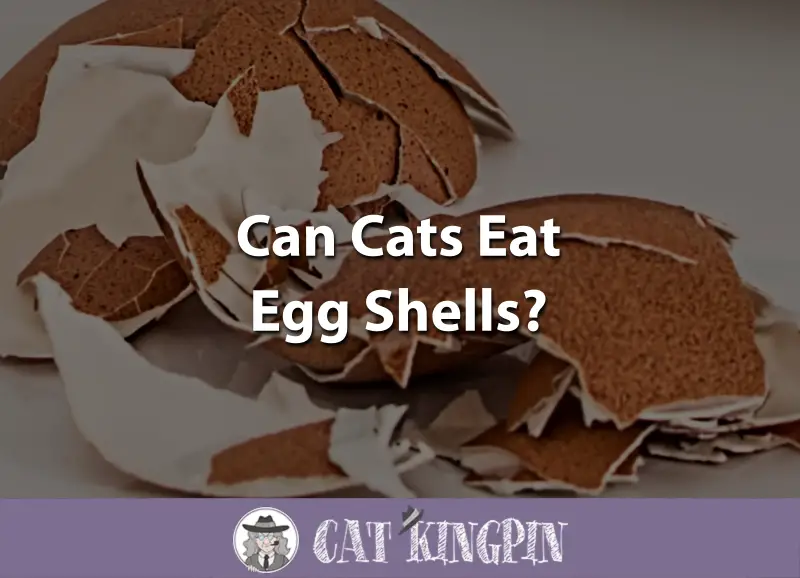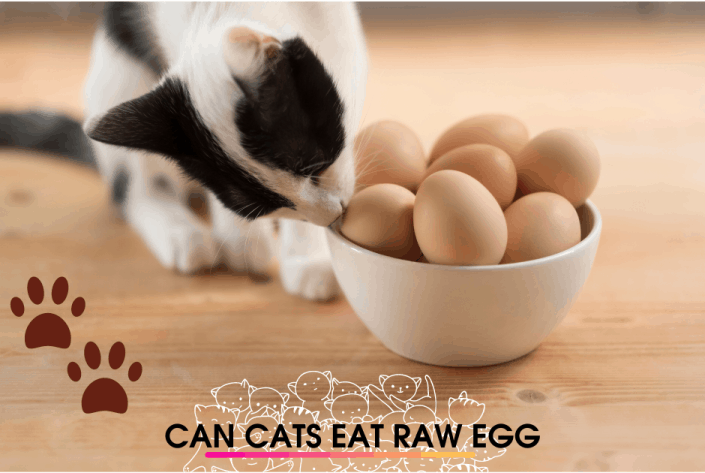Cats are known for their curious nature and unique dietary preferences. As a cat owner, you may have wondered if it is safe to feed your feline friend egg shells. In this article, we will explore whether cats can eat egg shells and the potential benefits and risks associated with this practice. So, let’s dive in and uncover the truth about feeding egg shells to cats.

Can Cats Safely Consume Egg Shells?
Cats are obligate carnivores, which means their diet primarily consists of meat. While cats can derive essential nutrients from animal-based sources, such as meat and organs, they do not have the necessary enzymes to digest plant matter effectively. Therefore, it is important to consider the nutritional value and potential risks before introducing egg shells into your cat’s diet.
The Nutritional Value of Egg Shells for Cats
Egg shells are primarily composed of calcium carbonate, which is a rich source of calcium. Calcium is essential for maintaining strong bones and teeth, regulating muscle function, and supporting nerve transmission in cats. Incorporating calcium into your cat’s diet can be beneficial, especially for growing kittens, pregnant or lactating cats, and those with certain medical conditions.
Benefits of Feeding Egg Shells to Cats
Feeding egg shells to cats can provide several benefits, including:
-
Calcium Supplementation: Egg shells can serve as a natural and cost-effective source of calcium for cats, especially if they have a calcium deficiency or require additional supplementation.
-
Dental Health: The abrasive texture of egg shells can help remove plaque and tartar buildup on your cat’s teeth, promoting better oral hygiene.
-
Digestive Aid: In some cases, egg shells can act as a gentle digestive aid, helping to alleviate constipation or diarrhea in cats.
Risks and Precautions
While egg shells can offer nutritional benefits, it is crucial to consider the potential risks and take necessary precautions:
-
Choking Hazard: Egg shells can pose a choking hazard, especially if they are not finely ground or crushed. Ensure that the egg shells are thoroughly crushed before offering them to your cat.
-
Bacterial Contamination: Raw egg shells may harbor harmful bacteria like Salmonella. It is important to cook the egg shells thoroughly before feeding them to your cat to minimize the risk of bacterial contamination.
-
Calcium Imbalance: Excessive calcium intake can lead to imbalances in a cat’s diet, potentially causing urinary issues or kidney problems. It is essential to consult with your veterinarian to determine the appropriate amount of calcium for your cat’s specific needs.
Conclusion
In conclusion, while egg shells can provide certain nutritional benefits to cats, it is important to exercise caution and consider the potential risks involved. Before incorporating egg shells into your cat’s diet, consult with your veterinarian to ensure it aligns with their specific dietary requirements and health conditions. Remember, a balanced and species-appropriate diet is crucial for your cat’s overall well-being.
FAQs
1. Can cats eat raw egg shells?
Feeding raw egg shells to cats is not recommended due to the risk of bacterial contamination. It is best to cook the egg shells thoroughly before offering them to your feline companion.
2. How should I prepare egg shells for my cat?
To prepare egg shells for your cat, ensure they are thoroughly cleaned and cooked. After cooking, crush the egg shells into a fine powder or grind them using a mortar and pestle. This will help prevent any potential choking hazards.
3. How much egg shell powder should I give my cat?
The amount of egg shell powder to give your cat depends on their individual needs and dietary requirements. It is advisable to consult with your veterinarian to determine the appropriate dosage for your cat.
4. Can egg shells replace commercial calcium supplements for cats?
While egg shells can serve as a natural source of calcium, they should not replace commercial calcium supplements without proper guidance from a veterinarian. Commercial supplements are specifically formulated to meet a cat’s nutritional needs and ensure balanced calcium intake.
5. Are there any alternatives to feeding egg shells for calcium supplementation?
Yes, there are alternative sources of calcium for cats, such as commercially available calcium supplements formulated for feline consumption. Additionally, certain cat-friendly foods, like canned fish with bones or bone meal, can also provide calcium. Consult with your veterinarian to determine the best option for your cat.

